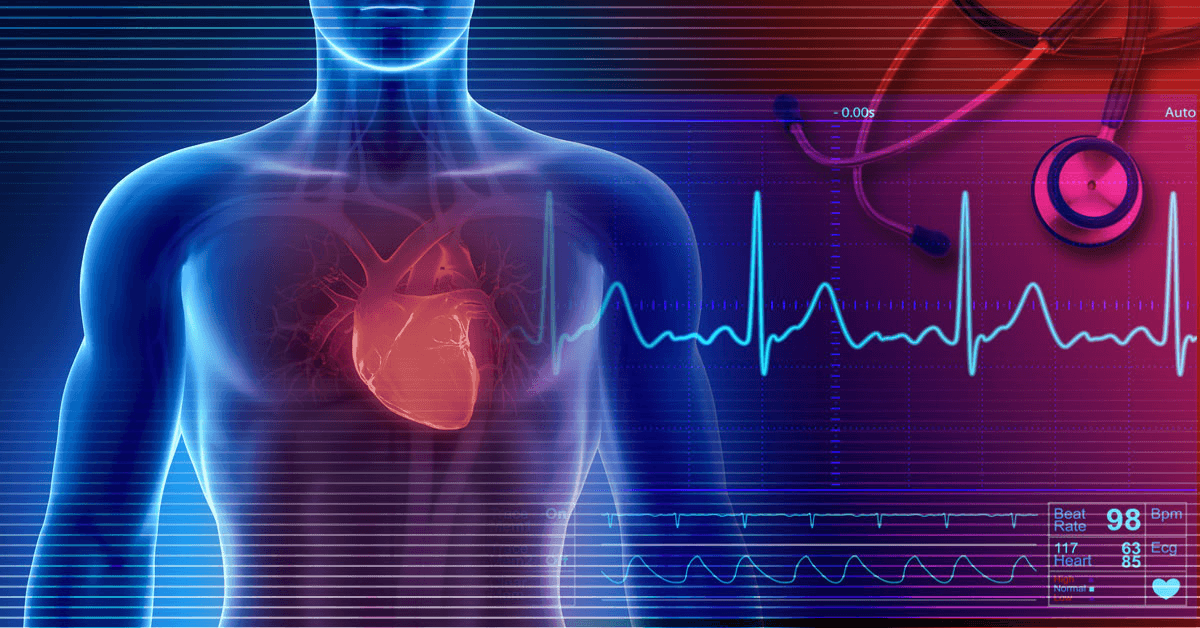
There is a direct correlation between sudden cardiac arrest and heart arrhythmias like Atrial Fibrillation. Learn more about AFib and how to address this potentially devastating heart disease.
The human heart is like a house. It is an organization of a sophisticated plumbing and electrical scheme. There are a number of things that can go wrong over time and each part of the heart affects another. The result is heart disease.
Heart disease is an umbrella term that includes conditions like:
· hardening and narrowing of the arteries that surround the heart
· heart valve disease
· heart failure
· heart attack
· heart muscle disease
· abnormal heart rhythms, known as arrhythmias.
The most common type of arrhythmia is atrial fibrillation or AFib for short.
What exactly is AFib?
AFib is when you have a chronically irregular pulse, or it is too fast or too slow. Basically, the electricity that jumpstarts each beat is working incorrectly. The four chambers in the heart become uncoordinated. Blood no longer flows right.
Other symptoms of AFib include feeling:
· overwhelmingly tired
· short of breath
· dizzy or lightheaded
· a rapid flutter in your chest
· brief chest pain
By the end of this decade, more than 12 million people in this country will be diagnosed with AFib. Left untreated, AFib worsens with age.
AFib can ultimately lead to a higher risk of stroke and sudden cardiac arrest (SCA)
AFib and SCA
If someone has AFib, statistically they also have other heart conditions and risk factors that can lead to SCA.
For example, AFib can lead to cardiomyopathy, a condition where the heart muscle becomes thickened, making each beat difficult for the heart to work efficiently. This will lead to heart failure. Cardiomyopathy is a known precursor to SCA and sudden cardiac death (SCD).
Something else we know is that AFib triggers another arrhythmia—ventricular fibrillation. This abnormal rhythm is directly correlated to SCA and SCD.
If AFib is ignored, the abnormal electrical impulses find other pathways along the heart muscle to compensate. This causes areas of scarring on the heart and lessens the ability of the electricity to continue to function. SCA and SCD may be a result.
Treat your AFib
AFib is a serious condition. SCA is often deadly.
If you have any symptoms of AFib, report them to your primary care provider immediately. They will determine if you need to see a heart specialist.
Cardiologists have multiple ways to treat AFib. Medication regimes, outpatient procedures, and surgical interventions are usually attempted before an implanted pacemaker is necessary.
What you can do today
With healthy lifestyle choices, you can influence your heart’s health in positive ways.
· Follow a heart-healthy diet
· Find your healthy weight
· Engage in activities that lower stress
· Find enjoyable ways to be physically active
· Avoid all nicotine
SCA commonly comes without warning or a known outside trigger. However, AFib is both common and treatable.
While science is working hard to learn more about both predicting and preventing SCA, research continues. Remember, do not ignore irregular heart rhythms or other signs of AFib. It can lead to heart failure over time.
Do yourself and your loved ones a favor: seek medical advice for managing your heart arrhythmias today.
Resources:
1 Centers for Disease Control and Prevention. Atrial Fibrillation.
2 Deutsches Arzteblatt International. Arrhythmia-induced cardiomyopathy.
3 Starting Hearts. What is sudden cardiac arrest?
4 Starting Hearts. How to prevent sudden cardiac arrest.
5 American Heart Association. Association between AFib and sudden cardiac arrest.
